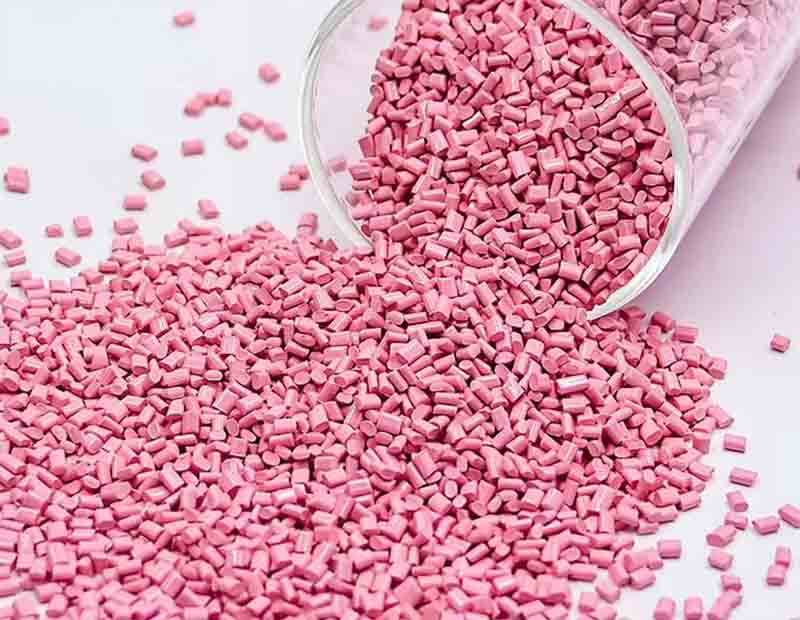Introduction to Polyphenylsulfone (PPSU)
Polyphenylsulfone (PPSU) is a High-performance thermoplastic polymer belonging to the sulfone family, known for its exceptional thermal stability, chemical resistance, and mechanical strength. This amorphous material exhibits a unique combination of properties that make it suitable for demanding applications across various industries. With a glass transition temperature (Tg) of 220°C and continuous use temperature up to 180°C, PPSU maintains its structural integrity under extreme conditions where most other thermoplastics would fail.

Key Characteristics of PPSU
Thermal Properties
PPSU demonstrates outstanding thermal stability with a heat deflection temperature (HDT) of 207°C at 1.82 MPa (ASTM D648). Its thermal conductivity measures 0.35 W/m·K, while the coefficient of thermal expansion ranges between 5.5-5.8 × 10⁻⁵ K⁻¹ (23-100°C). These properties enable PPSU components to withstand repeated steam sterilization cycles (134°C for over 1000 cycles) without significant degradation.
Mechanical Properties
The material exhibits remarkable mechanical strength with a tensile strength of 70-75 MPa (ASTM D638) and flexural modulus of 2.4-2.6 GPa (ASTM D790). Its impact resistance is particularly notable, with notched Izod impact strength of 69-75 J/m at 23°C (ASTM D256), maintaining good toughness even at temperatures as low as -40°C.
Chemical Resistance
PPSU offers excellent resistance to a wide range of chemicals, including acids, bases, and hydrocarbons. It withstands exposure to pH 2-12 solutions at elevated temperatures and demonstrates particular resistance to polar organic solvents. The material's water absorption is limited to 0.37% at equilibrium (23°C, 50% RH, ASTM D570), contributing to its dimensional stability in humid environments.
Electrical Properties
As an electrical insulator, PPSU exhibits a dielectric strength of 16 kV/mm (ASTM D149) and volume resistivity of 10¹⁶ Ω·cm (ASTM D257). Its dielectric constant remains stable at 3.2-3.5 across frequencies from 50 Hz to 1 MHz (ASTM D150), making it suitable for high-frequency applications.
Applications of PPSU
The unique combination of properties makes PPSU valuable in numerous demanding applications:
Medical and Healthcare
Surgical instrument components requiring repeated sterilization
Dental instrument handles and orthodontic devices
Medical tubing connectors and fluid handling systems
Membrane housings for dialysis equipment
Aerospace and Automotive
Aircraft interior components meeting FAA flammability requirements
Electrical connectors and junction boxes in aerospace applications
Under-the-hood automotive components exposed to high temperatures
Fuel system components resistant to biofuels and additives
Food Service and Water Treatment
Reusable food service items (trays, utensils) for institutional use
Water filtration membranes and housings
Hot water fittings and valves
Baby bottles and food contact applications
Industrial Applications
Chemical processing equipment gaskets and seals
Semiconductor manufacturing components
Electrical insulators for high-temperature environments
Membranes for gas separation processes
Maintenance and Care of PPSU Products
Proper maintenance ensures the longevity and performance of PPSU components:
Cleaning Procedures
For medical and food contact applications, PPSU can be effectively cleaned using:
Autoclaving at 121-134°C for 15-30 minutes
Chemical sterilization with ethylene oxide or hydrogen peroxide plasma
Mild detergents with pH between 5-9 for manual cleaning
Ultrasonic cleaning with water or mild cleaning solutions
Storage Conditions
To maintain optimal properties:
Store in a clean, dry environment at temperatures below 60°C
Protect from prolonged exposure to UV radiation
Avoid contact with strong oxidizing agents and concentrated acids
Keep away from sources of extreme heat (> 200°C)
Inspection and Replacement
Regular inspection should include:
Visual examination for cracks, crazing, or discoloration
Dimensional checks for warping or deformation
Functional testing of moving parts in assemblies
Replacement when surface roughness exceeds 0.8 μm Ra for critical applications
Special Considerations
When machining or repairing PPSU components:
Use sharp tools with positive rake angles to prevent material tearing
Maintain feed rates between 0.05-0.2 mm/revolution for optimal surface finish
Annealing at 160-180°C for 2-4 hours may be required to relieve machining stresses
Adhesive bonding requires surface activation via plasma treatment or chemical etching






